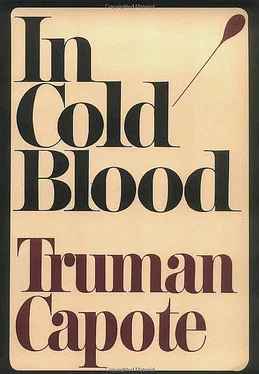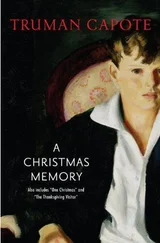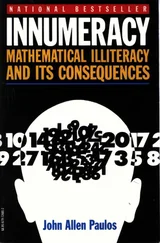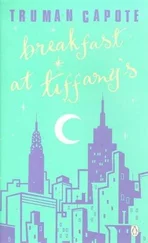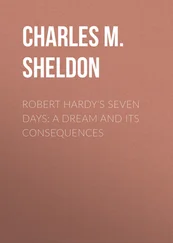But the expected huntsmen did not materialize, and though ordinary tourists—the few that trickle along the highway—now and again paused to photograph the beyond-belief rusticity of Trapper’s Den Lodge, they seldom stopped overnight. “For awhile we fooled ourselves. Kept thinking it would catch on. Dad tried to trick up the place. Made a Garden of Memories. With a Wishing Well. Put painted signs up and down the highway. But none of it meant a nickel more. When Dad realized that—saw it wasn’t any use, all we’d done was waste ourselves and all our money—he began to take it out on me. Boss me around. Be spiteful. Say I didn’t do my proper share of the work. It wasn’t his fault, any more than it was mine. A situation like that, with no money and the grub getting low, we couldn’t help but be on each other’s nerves. The point came we were downright hungry. Which is what we fell out over. Ostensibly. A biscuit. Dad snatched a biscuit out of my hand, and said I ate too much, what a greedy, selfish bastard I was, and why didn’t I get out, he didn’t want me there no more. He carried on like that till I couldn’t stand it. My hands got hold of his throat. My hands—but I couldn’t control them. They wanted to choke him to death. Dad, though, he’s slippery, a smart wrestler. He tore loose and ran to get his gun. Came back pointing it at me. He said, ‘Look at me, Perry. I’m the last thing living you’re ever gonna see.’ I just stood my ground. But then he realized the gun wasn’t even loaded, and he started to cry. Sat down and bawled like a kid. Then I guess I wasn’t mad at him any more. I was sorry for him. For both of us. But it wasn’t a bit of use—there wasn’t anything I could say. I went out for a walk. This was April, but the woods were still deep in snow. I walked till it was almost night. When I got back, the lodge was dark, and all the doors were locked. And everything I owned was lying out there in the snow. Where Dad had thrown it. Books. Clothes. Everything. I just let it lie. Except my guitar. I picked up my guitar and started on down the highway. Not a dollar in my pocket. Around midnight a truck stopped to give me a lift. The driver asked where I was going. I told him, ‘Wherever you’re headed, that’s where I’m going.’ “
Several weeks later, after again sheltering with the James family, Perry decided on a definite destination—Worcester, Massachusetts, the home town of an “Army buddy” he thought might welcome him and help him find “a good-paying job.” Various detours prolonged the eastward journey; he washed dishes in an Omaha restaurant, pumped gas at an Oklahoma garage, worked a month on a ranch in Texas. By July of 1955 he had reached, on the trek to Worcester, a small Kansas town, Phillipsburg, and there “fate,” in the form of “bad company,” asserted itself. “His name was Smith,” Perry said. “Same as me. I don’t even recall his first name. He was just somebody I’d picked up with somewhere, and he had a car, and he said he’d give me a ride as far as Chicago. Anyway, driving through Kansas we came to this little Phillipsburg place and stopped to look at a map. Seems to me like it was a Sunday. Stores shut. Streets quiet. My friend there, bless his heart, he looked around and made a suggestion.” The suggestion was that they burglarize a nearby building, the Chandler Sales Company. Perry agreed, and they broke into the deserted premises and removed a quantity of office equipment (typewriters, adding machines). That might have been that if only, some days afterward, the thieves hadn’t ignored a traffic signal in the city of Saint Joseph, Missouri. “The junk was still in the car. The cop that stopped us wanted to know where we got it. A little checking was done, and, as they say, we were ‘returned’ to Phillipsburg, Kansas. Where the folks have a real cute jail. If you like jails.” Within forty-eight hours Perry and his companion had discovered an open window, climbed out of it, stolen a car, and driven northwest to McCook, Nebraska. “Pretty soon we broke up, me and Mr. Smith. I don’t know what ever became of him. We both made the F.B.I.’s Wanted list. But far as I know, they never caught up with him.”
One wet afternoon the following November, a Greyhound bus deposited Perry in Worcester, a Massachusetts factory town of steep, up-and-down streets that even in the best of weathers seem cheerless and hostile. “I found the house where my friend was supposed to live. My Army friend from Korea. But the people there said he’d left six months back and they had no idea where he’d gone. Too bad, big disappointment, end of the world, all that So I found a liquor store and bought a half gallon of red wop and went back to the bus depot and sat there drinking my wine and getting a little warmer. I was really enjoying myself till a man came along and arrested me for vagrancy.” The police booked him as “Bob Turner”—a name he’d adopted because of being listed by the F.B.I. He spent fourteen days in jail, was fined ten dollars, and departed from Worcester on another wet November afternoon. “I went down to New York and took a room in a hotel on Eighth Avenue,” Perry said. “Near Forty-second Street. Finally, I got a night job. Doing odd jobs around a penny arcade. Right there on Forty-second Street, next to an Automat. Which is where I ate—when I ate. In over three months I practically never left the Broadway area. For one thing, I didn’t have the right clothes. Just Western clothes—jeans and boots. But there on Forty-second Street nobody cares, it all rides—anything. My whole life, I never met so many freaks.”
He lived out the winter in that ugly, neon-lit neighborhood, with its air full of the scent of popcorn, simmering hot dogs, and orange drink. But then, one bright March morning on the edge of spring, as he remembered it, “two F.B.I, bastards woke me up. Arrested me at the hotel. Bang!—I was extradited back to Kansas. To Phillipsburg. That same cute jail. They nailed me to the cross—larceny, jailbreak, car theft. I got five to ten years in Lansing. After I’d been there awhile, I wrote Dad. Let him know the news. And wrote Barbara, my sister. By now, over the years, that was all I had left me. Jimmy a suicide. Fern out the window. My mother dead. Been dead eight years. Everybody gone but Dad and Barbara.”
A letter from Barbara was among the sheaf of selected matter that Perry preferred not to leave behind in the Mexico City hotel room. The letter, written in a pleasingly legible script, was dated April 28, 1958, at which time the recipient had been imprisoned for approximately two years:
Dearest Bro. Perry,
We got your 2nd letter today & forgive me for not writing sooner. Our weather here, as yours is, is turning warmer & maybe I am getting spring fever but I am going to try and do better. Your first letter was very disturbing, as I’m sure you must have suspected but that was not the reason I haven’t written—it’s true the children do keep me busy & it’s hard to find time to sit and concentrate on a letter as I have wanted to write you for some time. Donnie has learned to open the-doors and climb on the chairs & other furniture & he worries me constantly about falling.
I have been able to let the children play in the yard now &then—but I always have to go out with them as they can hurt themselves if I don’t pay attention. But nothing is forever & I know I will be sorry when they start running the block and I don’t know where they’re at. Here are some statistics if you’re interested—
= Height = Weight = Shoe Size
Freddie = 36-1/2” = 26-1/2 lbs. = 7-1/2 narrow
Baby = 37-1/2” = 29-1/2 lbs. = 8 narrow
Donnie = 34” = 26 lbs. = 6-1/2 wide
You can see that Donnie is a pretty big boy for 15 months with his 16 teeth and his sparkling personality—people just can’t help loving him. He wears the same size clothes as Baby and Freddie but the pants are too long as yet.
Читать дальше
